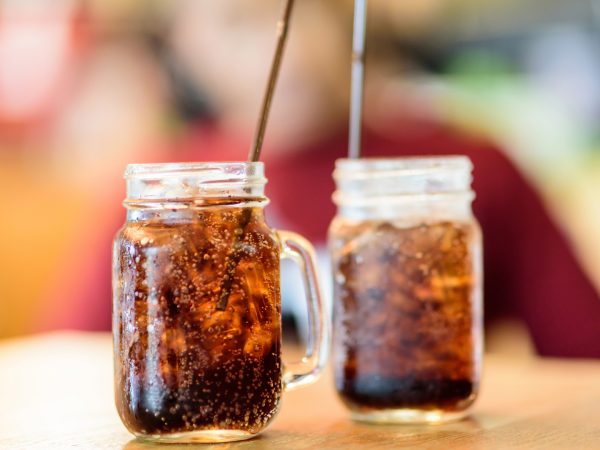Soft Drinks And Hip Fractures?
Is it true that drinking two or more soft drinks daily can cause hip fractures in postmenopausal women? What’s the connection?
Andrew Weil, M.D. | April 10, 2020

Soft drinks don’t cause hip fractures, but some recent research does suggest that consuming two or more servings of soft drinks daily is linked to an increased incidence of hip fractures in older women. The findings come from a study that included 72,342 postmenopausal women who were followed for at least 12 years, during which 2,578 of them suffered hip fractures. This happened most often among women who drank an average of more than 14 12-ounce sodas per week. The risk was 32 percent higher for those who consumed more than 14 servings of caffeine-free soda per week. Study leader, Pedro Kremer, M.D., of the University of California San Diego and San Diego State University, said that low levels of soda consumption did not appear to increase the risk of hip fractures in postmenopausal women.
Once women reach menopause and estrogen levels decline, bone loss escalates. Rapid bone loss continues for about five years during and after menopause and can deplete three to four percent of a woman’s total bone mass. These losses eventually taper off to equal the amount lost in men of the same age. But bone loss continues throughout life. About one out of every three postmenopausal women has osteoporosis to some degree; even mild osteoporosis increases risk of fractures, particularly of the hip, vertebrae and wrists.
The new study isn’t the first to show a link between soft drink consumption and bone thinning, but it is the first to associate sodas with osteoporosis-related hip fracture. The researchers noted that some earlier studies have suggested that the risk for bone loss is increased with consumption of certain kinds of beverages, such as colas, but not for all soft drinks.
The women participating provided detailed information about their health including the amount of caffeinated and caffeine-free soft drinks they consumed, as well as their age, ethnicity, education level, family income, body mass index, use of hormonal therapy and birth control pills, their coffee consumption and history of falls.
The researchers found that the risk of hip fractures associated with soda consumption remained after they accounted for other risks factors affecting bone strength, including the use of medications for osteoporosis, diabetes, coffee consumption, income, exercise levels and a history of maternal hip fractures.
They were not able to distinguish between consumption of diet soda and sugar-sweetened soda and called for more research to examine the impact of sugar and other sweeteners on fracture risk. They also wrote that there appears to be no specific ingredient in soda “that can be reliably identified as responsible” for the increased incidence of hip fractures and that “the biological mechanism underlying the association between sodas and bone health still needs to be explored.”
Here’s where you can learn more about osteoporosis, its causes, diagnosis and treatment.
Andrew Weil, M.D.
Source:
Pedro A. Kremer et al, “Association between soft drink consumption and osteoporotic fractures among postmenopausal women,” Menopause, October 14, 2019, doi: 10.1097/GME.0000000000001389









